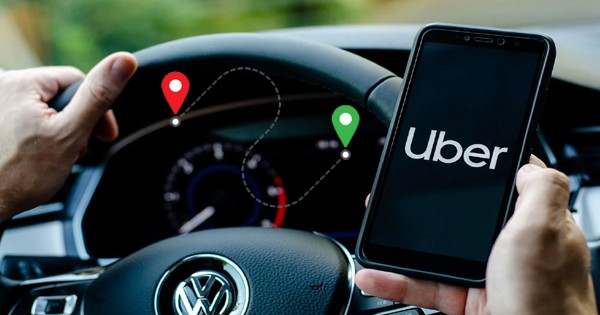In a recent ruling by the District Consumer Disputes Redressal Commission of Chandigarh, Uber India has been fined ₹20,000 for overcharging a customer. The case, brought forth by Chandigarh resident Ashwani Prashar, sheds light on the importance of transparency and fair practices in the ride-hailing industry.
Prashar’s grievance stemmed from a seemingly short 8.83-kilometer ride that lasted merely 15 minutes. Despite the brevity of the journey, Prashar was shocked to discover that he was charged a staggering ₹1,334, amounting to approximately ₹150 per kilometer. His repeated attempts to seek resolution through chats and emails with Uber went unanswered, prompting him to escalate the matter to the consumer court.
Uber India defended its position by stating that the upfront fare displayed to Prashar was ₹359. However, due to what the company termed as “multiple route deviations,” the final fare escalated to ₹1,334. Uber claimed that it could not ascertain whether these deviations were initiated by the rider or the driver. Nonetheless, the company maintained that it merely serves as an intermediary between riders and drivers, absolving itself of responsibility for route deviations.
Despite Uber’s arguments, the Consumer Disputes Redressal Commission sided with Prashar, denouncing Uber’s actions as an “unfair trade practice.” The commission emphasized the importance of adhering to contracted fares and condemned the practice of charging excess amounts during advance bookings. In addition to the compensation awarded to Prashar, the commission mandated Uber India to deposit ₹10,000 in the Consumer Welfare Fund, signaling a stern stance against service providers who breach consumer trust.
This ruling serves as a cautionary tale for ride-hailing companies, underscoring the need for transparency and accountability in fare calculation and service provision. As the gig economy continues to expand, regulatory bodies are tasked with ensuring that consumer rights are upheld and unfair practices are swiftly addressed.
In the wake of this judgment, Uber India and other ride-hailing platforms must prioritize fair pricing policies and robust mechanisms for addressing customer grievances. Failure to do so not only risks financial penalties but also erodes consumer confidence in the reliability of such services. Transparency, integrity, and consumer-centricity should remain at the forefront of the ride-hailing industry’s operations to foster trust and long-term sustainability.


One thought on “Uber India Fined by Consumer Court for Overcharging”